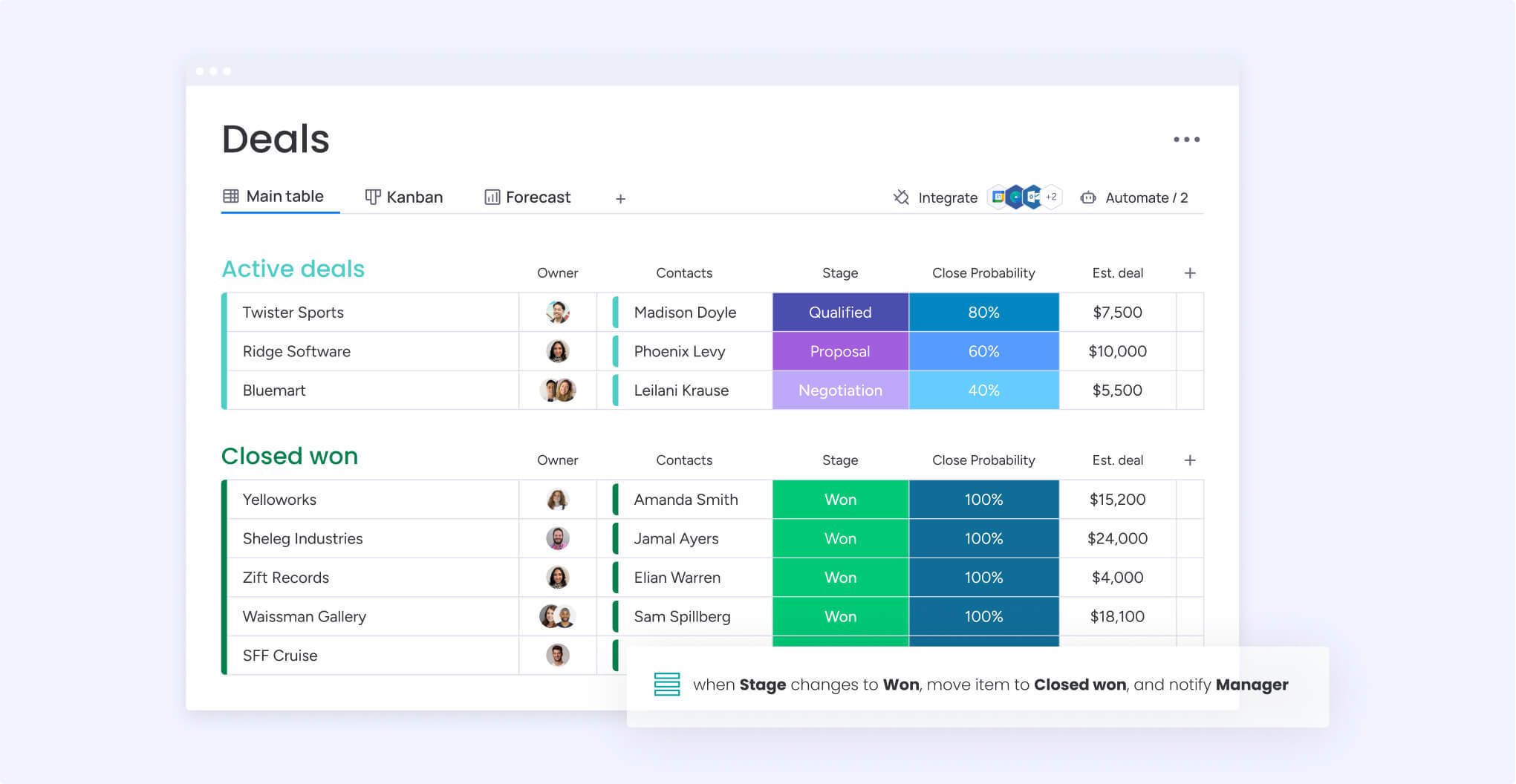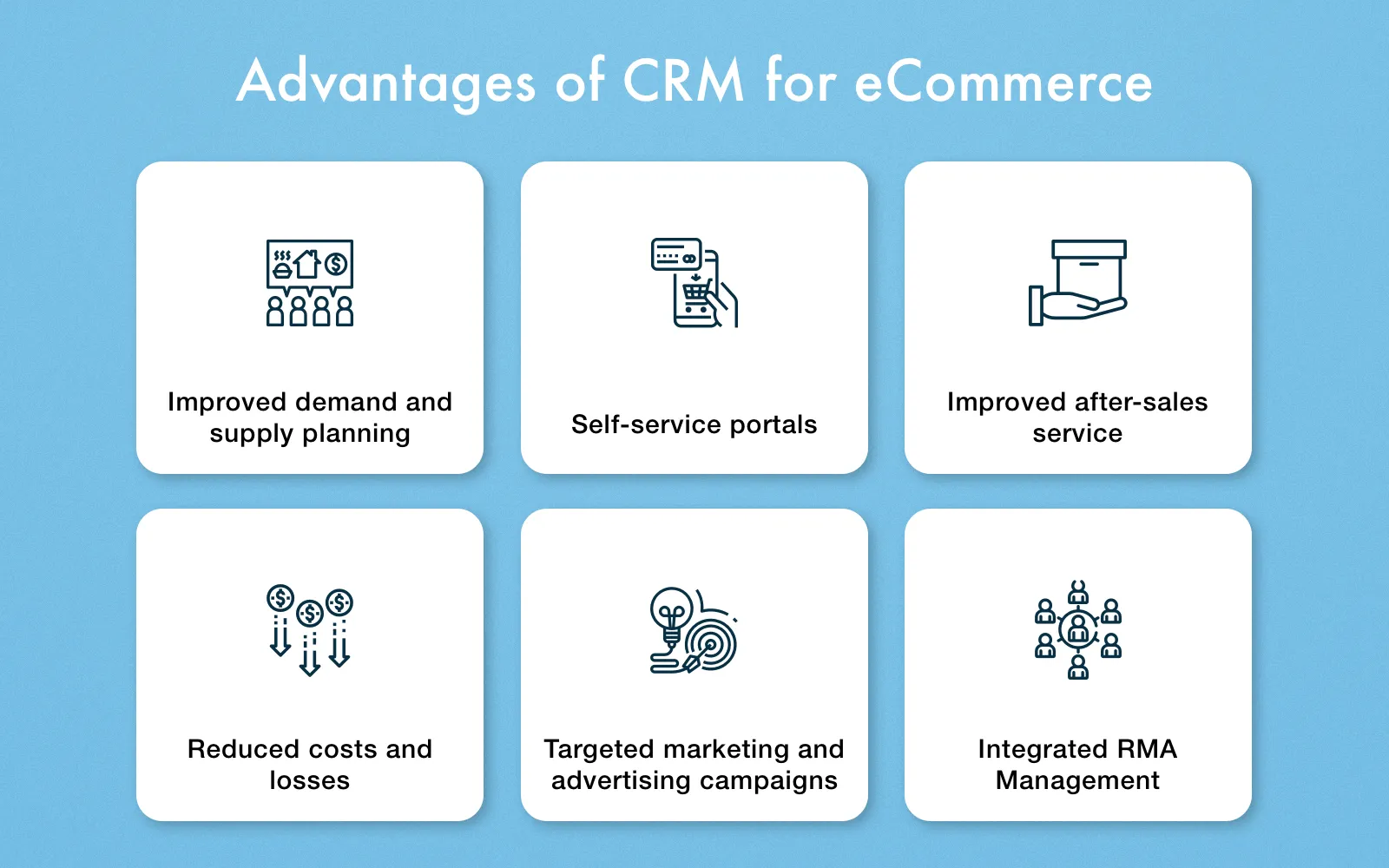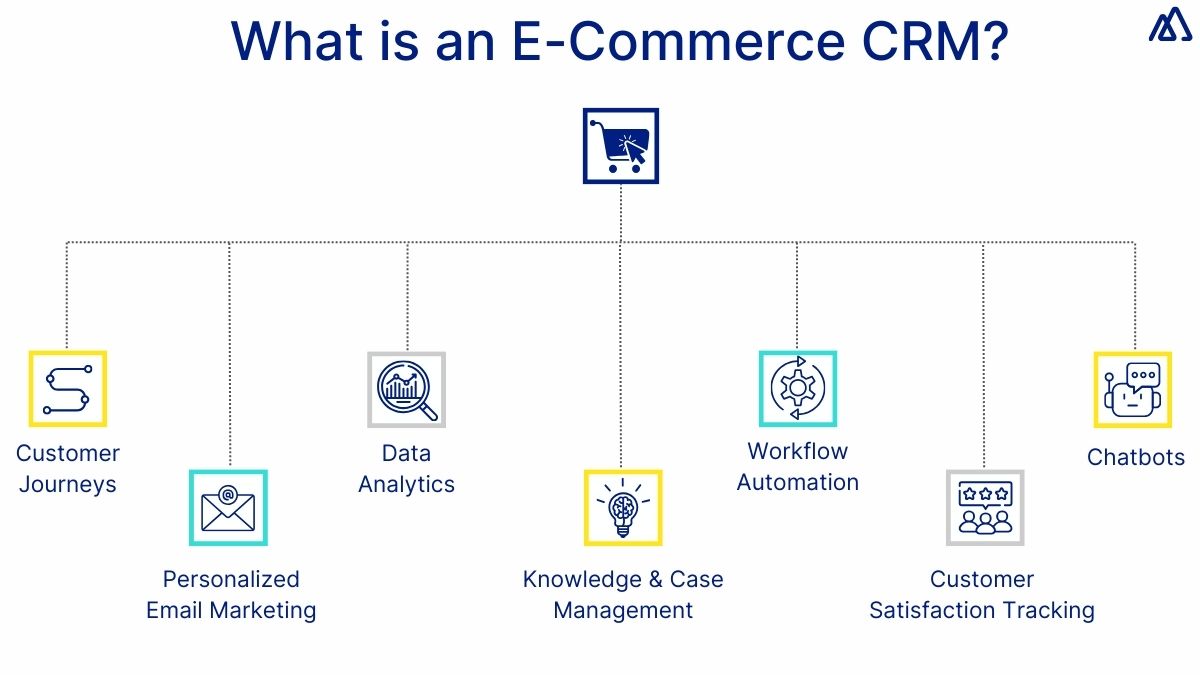In the rapidly evolving e-commerce landscape, businesses are continually seeking innovative strategies to enhance customer engagement, streamline operations, and ultimately drive sales growth.
A Customer Relationship Management (CRM) system tailored for e-commerce platforms has emerged as a pivotal tool in achieving these objectives.
By integrating a CRM, online retailers can gain a holistic view of their customers’ behaviors and preferences, enabling personalized marketing, improved customer service, and more effective sales strategies. This synergy between CRM and e-commerce is revolutionizing the way businesses interact with their customers, fostering loyalty and boosting online sales.
How CRM Systems Can Revolutionize E-commerce Sales Strategies
In the competitive world of e-commerce, staying ahead of the curve requires more than just a great product or service; it demands a deep understanding of your customers and the ability to tailor your sales strategies to meet their evolving needs.
This is where Customer Relationship Management (CRM) systems come into play, offering a powerful tool to enhance customer interactions, streamline sales processes, and ultimately boost online sales.
Personalizing Customer Experiences with CRM Data
By leveraging the data collected by CRM systems, e-commerce businesses can gain a more nuanced understanding of their customers’ preferences, behaviors, and shopping patterns.
This information allows for the creation of highly personalized marketing campaigns, tailored promotions, and product recommendations that resonate with individual customers, significantly enhancing their shopping experience and fostering loyalty.
Streamlining Sales Processes for Enhanced Efficiency
CRM systems are not just about managing customer data; they also play a crucial role in optimizing sales processes.
By automating routine tasks and providing sales teams with real-time access to customer information, CRM solutions enable businesses to respond more quickly to customer inquiries and close deals more efficiently.
This streamlined sales process not only improves customer satisfaction but also reduces the time and resources required to manage sales operations.
Analyzing Customer Data to Inform Sales Strategies
One of the most significant advantages of CRM systems is their ability to analyze large volumes of customer data, providing valuable insights that can inform sales strategies.
By examining customer interactions across multiple touchpoints, businesses can identify trends, anticipate customer needs, and develop targeted sales initiatives that drive growth.
| CRM Feature | Benefit for E-commerce |
|---|---|
| Customer Data Management | Centralized storage of customer information for personalized marketing and enhanced customer service. |
| Sales Automation | Automation of routine sales tasks to improve efficiency and reduce the time required to close deals. |
| Analytics and Reporting | Insights into customer behavior and sales performance to inform strategic decisions. |
What is the best CRM system for sales?

The best CRM system for sales is a matter of debate, as different businesses have different needs and requirements. However, some of the most popular CRM systems for sales include Salesforce, HubSpot, and Zoho CRM.
These systems offer a range of features such as contact management, sales forecasting, and pipeline management.
Key Features to Consider
When evaluating a CRM system for sales, there are several key features to consider. A good CRM system should be able to help sales teams manage their contacts and leads, track their sales pipeline, and analyze their sales performance.
Some of the key features to look for include:
- Contact and lead management: the ability to store and manage contact information, as well as track leads and opportunities
- Sales forecasting and pipeline management: the ability to track sales performance and forecast future sales
- Reporting and analytics: the ability to generate reports and analyze sales data
Integration with Other Tools
Another important consideration when evaluating a CRM system for sales is its ability to integrate with other tools and systems. Many CRM systems offer integrations with other business applications, such as marketing automation tools, customer service software, and accounting systems.
Some of the key integrations to look for include:
- Marketing automation integrations: the ability to integrate with marketing automation tools, such as email marketing software
- Customer service integrations: the ability to integrate with customer service software, such as helpdesk systems
- Accounting integrations: the ability to integrate with accounting systems, such as invoicing and payment processing software
Customization and Scalability
Finally, it’s also important to consider the customization and scalability of a CRM system for sales. A good CRM system should be able to be customized to meet the specific needs of a business, and should be able to scale as the business grows.
Some of the key considerations include:
- Customizable fields and layouts: the ability to customize fields and layouts to meet the specific needs of a business
- Scalable architecture: the ability to handle large volumes of data and user traffic
- Flexible pricing plans: the ability to choose a pricing plan that meets the needs and budget of a business
Which type of CRM technique is best for ecommerce companies?

For ecommerce companies, the most effective CRM technique is often a combination of operational, analytical, and collaborative CRM. Operational CRM focuses on streamlining customer-facing processes such as sales, marketing, and customer service.
Analytical CRM, on the other hand, involves analyzing customer data to gain insights into their behavior, preferences, and needs. Collaborative CRM enables different departments within an organization to share customer information and work together to provide a seamless customer experience.
Key Features of Effective CRM for Ecommerce
Effective CRM for ecommerce companies involves several key features. A good CRM system should be able to integrate with existing ecommerce platforms, provide real-time customer data, and offer personalized marketing and customer service capabilities.
- Integration with ecommerce platforms such as Shopify, Magento, or WooCommerce
- Real-time customer data and analytics to inform marketing and customer service decisions
- Personalization capabilities to tailor the customer experience to individual preferences and behaviors
Benefits of CRM for Ecommerce Companies
Implementing a CRM system can bring numerous benefits to ecommerce companies. These benefits include improved customer satisfaction, increased customer loyalty, and enhanced customer lifetime value.
- Improved customer satisfaction through personalized marketing and customer service
- Increased customer loyalty through targeted retention strategies
- Enhanced customer lifetime value through data-driven marketing and sales efforts
Best Practices for Implementing CRM in Ecommerce
To get the most out of a CRM system, ecommerce companies should follow best practices for implementation. This includes defining clear goals and objectives, selecting the right CRM vendor, and providing ongoing training and support to employees.
- Define clear goals and objectives for CRM implementation, such as improving customer satisfaction or increasing sales
- Select a CRM vendor that meets the specific needs of the ecommerce company
- Provide ongoing training and support to employees to ensure successful adoption and utilization of the CRM system
What is CRM for ecommerce?

CRM for ecommerce refers to a customer relationship management system designed specifically for online stores. It is a tool that helps ecommerce businesses manage their interactions with customers, including sales, marketing, and customer service
A CRM system for ecommerce provides a centralized platform to store customer data, track customer behavior, and analyze customer interactions.
Key Features of CRM for Ecommerce
A CRM system for ecommerce typically includes a range of features that enable businesses to manage their customer relationships effectively. Some of the key features include:
- Customer data management: storing customer information, such as contact details and order history
- Sales and marketing automation: automating tasks, such as email marketing campaigns and follow-up emails
- Customer service management: managing customer inquiries and support requests
Benefits of Using CRM for Ecommerce
Using a CRM system for ecommerce can bring a range of benefits to online businesses. Some of the main advantages include:
- Improved customer insights: gaining a deeper understanding of customer behavior and preferences
- Increased sales: using data and analytics to identify new sales opportunities and personalize marketing efforts
- Enhanced customer experience: providing timely and relevant support to customers through multiple channels
How CRM for Ecommerce Works
A CRM system for ecommerce works by integrating with an online store’s existing infrastructure, such as the ecommerce platform and payment gateway. This integration enables the CRM system to access customer data and track customer interactions, such as purchases and browsing history. Some key aspects of how CRM for ecommerce works include:
- Data integration: integrating with ecommerce platforms, such as Shopify or Magento
- Customer tracking: tracking customer behavior, such as browsing history and purchase history
- Analytics and reporting: providing insights and reports on customer behavior and sales performance
Frequently Asked Questions
What is CRM for E-commerce and how does it work?
CRM for e-commerce is a tool that helps online businesses manage customer interactions and data. It collects and analyzes customer information, enabling personalized marketing, improved customer service, and streamlined sales processes. By integrating with e-commerce platforms, CRM systems provide a unified view of customer behavior, preferences, and purchase history.
How can CRM boost online sales for my e-commerce business?
CRM can boost online sales by enabling targeted marketing campaigns, improving customer engagement, and enhancing customer experiences. It helps identify high-value customers, tracks their behavior, and provides insights to tailor marketing efforts. By leveraging CRM data, businesses can optimize their sales strategies, reduce cart abandonment rates, and increase conversions.
What features should I look for in a CRM for e-commerce?
When selecting a CRM for e-commerce, look for features like integration with your e-commerce platform, customer data management, marketing automation, and sales analytics. Also, consider features like email marketing, customer segmentation, and reporting capabilities. Ensure the CRM is scalable, user-friendly, and provides robust customer support to meet your business needs.
Is CRM integration with my e-commerce platform complicated?
CRM integration with e-commerce platforms can be straightforward, depending on the CRM and platform chosen. Many CRM solutions offer pre-built integrations with popular e-commerce platforms like Shopify, Magento, and WooCommerce. These integrations enable seamless data transfer, eliminating manual data entry and ensuring a unified customer view. Some CRMs also offer APIs and customization options for more complex integrations.


